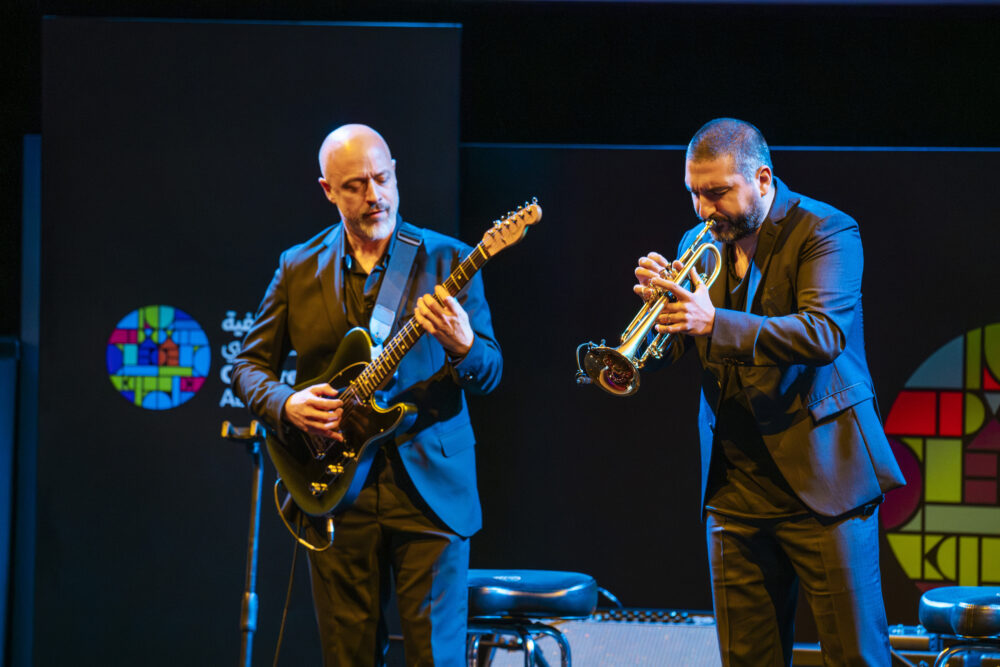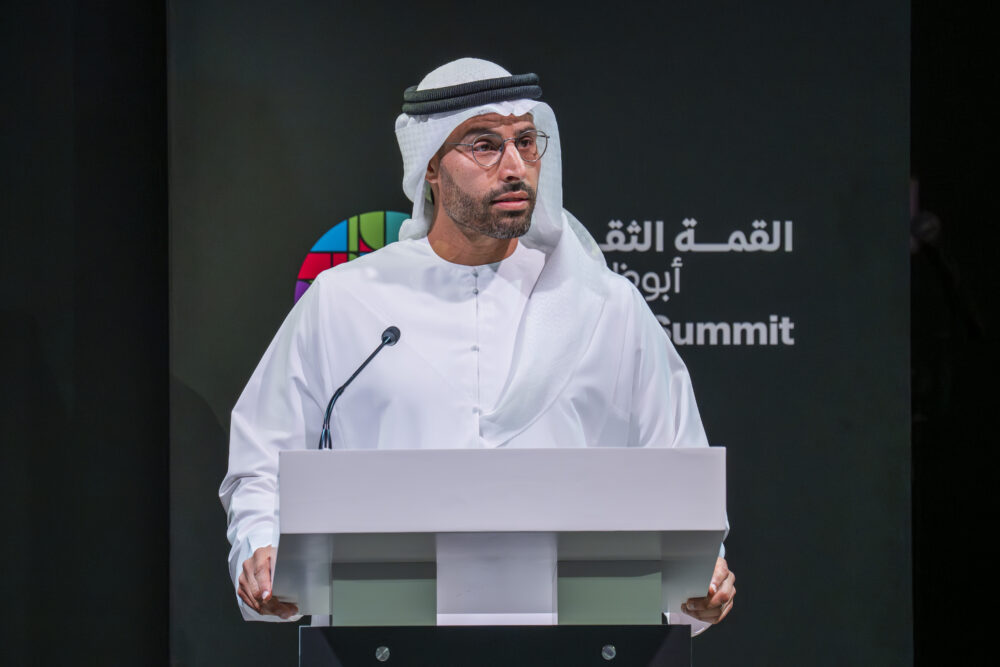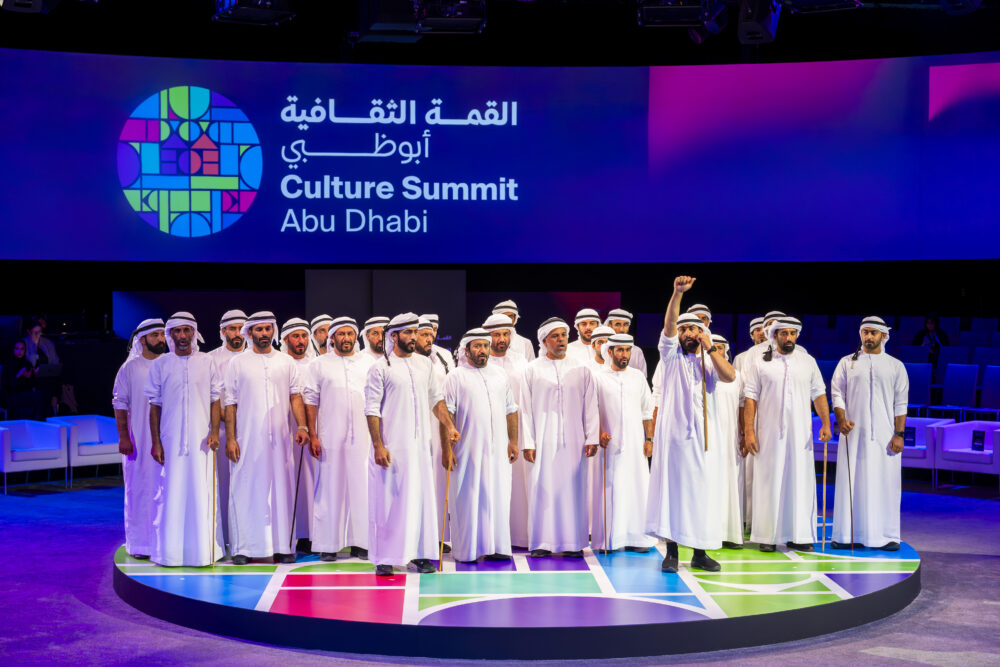The human thread: South African designer Thebe Magugu was a speaker at the Abu Dhabi Culture Summit.
I didn’t know much about Abu Dhabi when I stepped off the plane at Zayed International Airport. I knew that it was both the capital of the emirate with which it shares its name and of the United Arab Emirates (UAE) as a whole.
But what I discovered was how much serious money Abu Dhabi is investing in positioning itself as a global centre of arts and culture.
While I was in the city, I visited the Louvre Abu Dhabi, named after the famous museum in Paris, and made possible through an agreement between the UAE and France.
The summit took place in a precinct shared by Berklee Abu Dhabi, the first Middle Eastern outpost of the Berklee College of Music in Boston in the US, the largest independent college of contemporary music in the world.
The Guggenheim Abu Dhabi, named after the famed New York art museum, is under construction.
The Culture Summit is just one event on the Abu Dhabi arts calendar. The city was chosen by Unesco to host International Jazz Day this year, a celebration of music and artistic freedom, which is held annually on 30 April.
Multiple Grammy-winning jazz icon Herbie Hancock led an all-star line-up of some of the most celebrated figures in jazz music for a special concert at Etihad Arena.
The Abu Dhabi Culture Summit — running since 2017 and on its seventh edition — is one aspect of that effort. It’s a way to bring together an exceptional collective of creative thinkers, decision-makers, artists, designers, change-makers and leaders from the cultural and creative sectors.

Organised by the UAE’s department of culture and tourism, the goal of the annual event is to identify ways in which culture can transform societies and communities worldwide — and turn these ideas into actions and solutions.
The theme for this year “Culture for Humanity and Beyond” was apparently inspired by a speech delivered by the Nobel Prize-winning Nigerian writer Wole Soyinka at last year’s edition in which he opined that we are moving toward “the era of a post-human civilisation”.
Not being familiar with the speech myself, I’m not sure what he meant, but judging by the programme of the 2025 summit, it probably had a lot to do with fears around the rapid advancement of technology, particularly artificial intelligence (AI).
Indeed, there were plenty of discussions about how AI will affect — and is already affecting — how we navigate the world but the main thing I took away was that you can’t innovate beyond humanity.
No matter how much we progress technologically, the distinctly human elements of creativity, connection and culture will always be the things that make life meaningful.
We don’t go to the Louvre to see works generated by ChatGPT or DeepSeek. We go there to connect to the personal stories and histories of artists who create timeless works and the cultures and heritages that they capture for posterity.
AI can be a useful tool but it’s no replacement for humanity.
I had all this in the back of my mind when I spoke to Thebe Magugu, who was also attending the summit for the first time, but as a speaker.
The award-winning South African creative director and designer is a perfect example of that irreplaceable human element when he describes using fashion as a “Trojan horse” for storytelling.

Magugu won Louis Vuitton’s LVMH Prize in 2019; has collaborated with brands like Dior, Adidas and Valentino and has opened his own retail space and showroom, called Magugu House, in Johannesburg. It was named among Time Magazine’s best places in the world last year.
“I hadn’t heard about the summit before I was invited, either,” he tells me during a quick conversation at the Manarat Al Saadiyat, the multi-purpose venue for the event. His invitation had come through the Design Museum in London, which Magugu has collaborated with and is one of the summit’s partner organisations.
“When I started my brand, its premise was essentially ‘Afro-encyclopaedic fashion’,” he explains.
“So, capturing key histories, people’s cultures, that run the risk of being forgotten but forever immortalised through the power of cloth. Because I always think that fashion is an incredibly intelligent industry, and people not familiar with it seem to think that it’s superficial and it doesn’t have any deeper meaning.
“But, actually, how I participate with fashion is using it as a Trojan horse to tell our stories.
“And I think, as I started developing the brand or thinking about the brand early, before it even started, it was this idea that the West — whether it’s Europe or America — has documented its own story and history quite deeply. But who’s telling our story?”
“I think it’s so critical that we, as Africans, tell our stories instead of leaving it to someone else. How I do it, instead of in words, is through fashion,” he says.
And I think, by pure virtue of someone wearing my clothes, whether they’re here in the UAE or in Japan or wherever they are, they’re telling our story without even saying a word.”
During the summit, Magugu chatted with Cher Potter, deputy editor-in-chief of the London Design Museum’s Future Observatory Journal, about the creative ethos of his work. Magugu went through all the collections he has done and how they incorporate spirituality, culture and heritage.

“I was explaining one of my collections, Alchemy, where I interviewed spiritual healers back home, and I was just talking about the importance of ancestral veneration which, in Western terms, is simple gratitude,” he says.
Magugu explained how traditional healers like Noentla Khumalo had inspired the collection. He invited her to his studio where she threw her bones of divination on the floor. He photographed that and printed it on silk georgette fabric, from which a pleated skirt was made.
“That’s how you modernise culture, in a lot of ways. And I feel like people resonated with that so much — this idea that you can show where you’re from without it being literal. You know, it can be interpreted in a really beautiful, global way.”
That creative connection between history, spirituality and fashion is distinctly human in the best possible way and it reminds us of that often intangible, but essential, characteristic that is not easily replicated by technology.
“It’s been incredible and also quite validating that people really resonate with the approach of my brand,” Magugu says. “And I think people gravitate to that because the world actually needs that right now.
“As things sort of go faster and faster, especially exacerbated through social media and other technology, people are feeling lost in a lot of ways. And I feel like connecting to something higher is something everyone is actually craving right now.”
What Abu Dhabi’s Culture Summit ultimately reveals is even as we race into an era shaped by unprecedented technological advancement, it is humanity — expressed through art, music, fashion, storytelling and culture — that remains our greatest asset.
Whether through the ancestral echoes in Thebe Magugu’s designs or the global gatherings of minds seeking to preserve and progress our shared heritage, the message is clear — technology can simulate, support, and even astonish, but it cannot replace the soul.
In a world increasingly driven by algorithms and automation, it’s the emotional depth, historical awareness and spiritual resonance of human creativity that continues to ground us — and that, above all, will carry us forward.
Crédito: Link de origem

